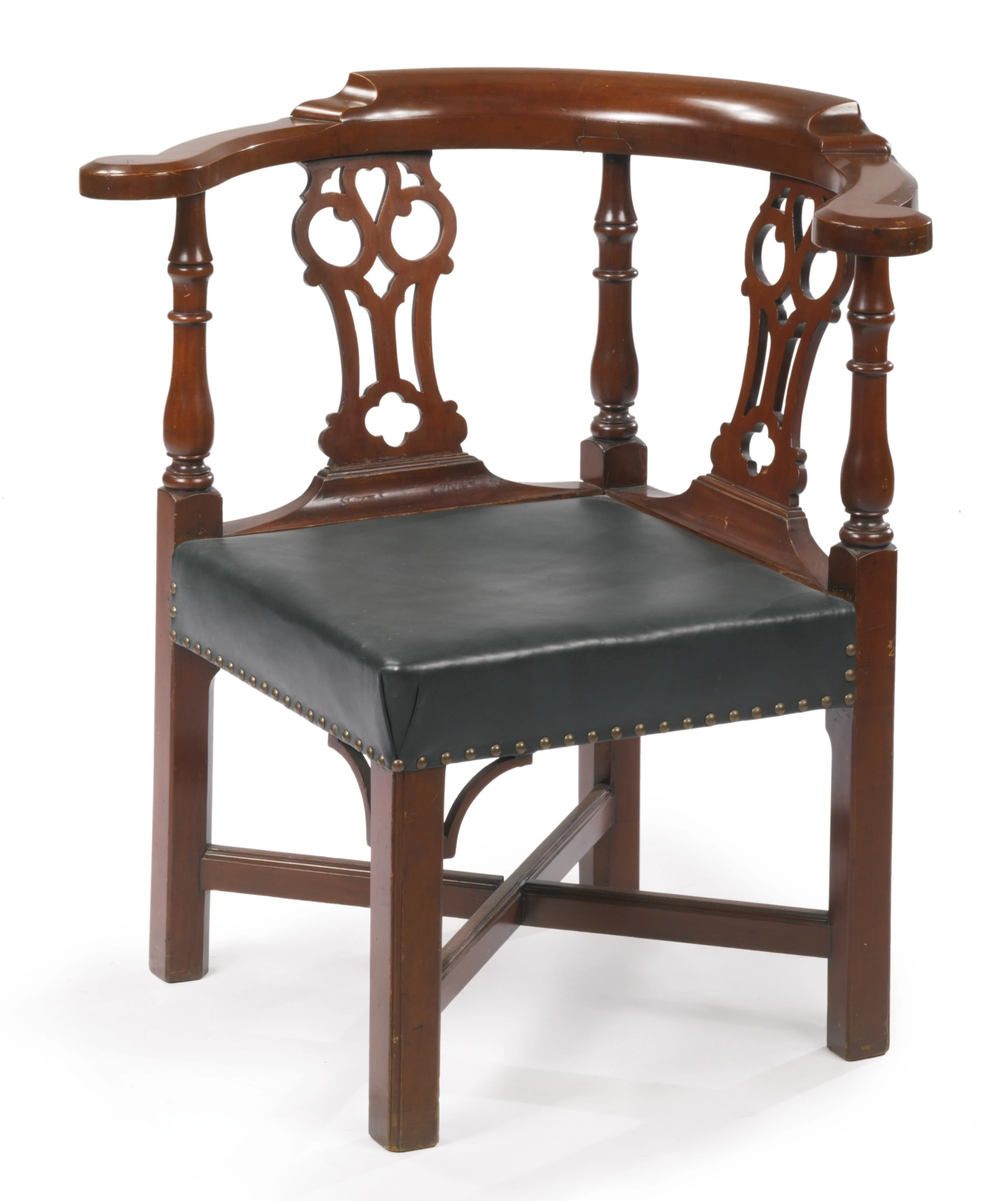“I dont want the fellow but I want Money”
Earlier this month Dr. Robert A. Selig shared an interesting document on Facebook.
It may also have appeared in one of the reports Selig has written for the National Washington-Rochambeau Revolutionary Route Association, and he said he welcomed other people writing about it. So here goes.
Samuel Talcott, Jr. (1740–1798), was a Hartford businessman. His paternal grandfather had been governor of Connecticut, he graduated from Yale College, and his father gave him this fine chair around the time of his marriage.
By 1781 Talcott had a growing family, an estate in West Hartford, and at least one enslaved servant. His Talcott ancestors had enslaved people as well, and there’s a record of him selling a six-year-old girl to James Wadsworth of Farmington in 1764.
In June 1781, many French troops under Gen. Rochambeau passed through Connecticut on their way from Newport to New York. Slavery was of course established in the French Empire as well. Bob Selig wrote, “Having a Black servant was somewhat of a status symbol in 18th c France and a number of French officers from Rochambeau on down either hired or purchased slaves.”
On 26 June, Talcott wrote to Jeremiah Wadsworth, who was acting as commissary for the French army in America:
TOMORROW: A good bargain.
It may also have appeared in one of the reports Selig has written for the National Washington-Rochambeau Revolutionary Route Association, and he said he welcomed other people writing about it. So here goes.
Samuel Talcott, Jr. (1740–1798), was a Hartford businessman. His paternal grandfather had been governor of Connecticut, he graduated from Yale College, and his father gave him this fine chair around the time of his marriage.
By 1781 Talcott had a growing family, an estate in West Hartford, and at least one enslaved servant. His Talcott ancestors had enslaved people as well, and there’s a record of him selling a six-year-old girl to James Wadsworth of Farmington in 1764.
In June 1781, many French troops under Gen. Rochambeau passed through Connecticut on their way from Newport to New York. Slavery was of course established in the French Empire as well. Bob Selig wrote, “Having a Black servant was somewhat of a status symbol in 18th c France and a number of French officers from Rochambeau on down either hired or purchased slaves.”
On 26 June, Talcott wrote to Jeremiah Wadsworth, who was acting as commissary for the French army in America:
Dear SirIn other words, Talcott was ready to sell Addam to this general if the price was right. Though legally the Frenchman would owe the young man’s wages to him as owner, Talcott was ready for cash now.
Notwithstanding the multiplicity of Affairs with which you Are incumbred as there is no one whose good will and Ability to Serve me in this Matter can be so well depended upon I take the Liberty to trouble you
My Negro Man Addam tells me that a French General Lodging at Mr. Caleb Bull Junr’s Wants to hire him as an attendant and will Cloath him and Give Good Wages
he says he doth not know whether the General Wants to Buy—if so he will perhaps as Likely give a Good price as Good Wages
The Negro is about three or four and twenty strong sensible active and handy and may do very well in that department—I dont want the fellow but I want Money—he informs me that the General Goes on this Afternoon—Talcott sent Addam off to Hartford with this letter for Wadsworth.
as I cannot Go in I desire you would take the matter up for me & act in it as you Would for yourself & it would be Done to my Entire Satisfaction, & I believe much Better than I should be able to transact it my Self
I am Dear Sr.
your Affectionate friend & Relative
Saml. Talcott Junr.
TOMORROW: A good bargain.


No comments:
Post a Comment